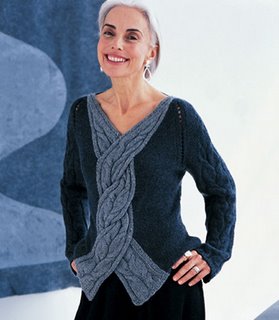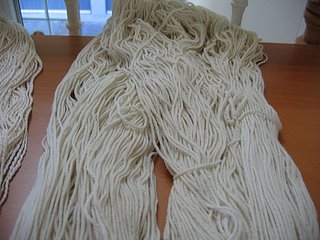I don't normally read Forbes, but I had to laugh about the brouhaha raised by
Don't Marry Career Women. I didn't read the original piece before it was pulled from the website and the rebuttal went up. Too bad. I like provocative writing.
If you stay calm and keep reading to the end, he states:
A word of caution, though: As with any social scientific study, it's important not to confuse correlation with causation. In other words, just because married folks are healthier than single people, it doesn't mean that marriage is causing the health gains. It could just be that healthier people are more likely to be married.
Sociology is not my area of research expertise, but I have a great deal of experience living this research topic. Perhaps the advice should be
don't marry career men. I say this slightly tongue in cheek, as career men are more likely to come with nice perks such as health insurance and retirement plans. But, maybe the reason that career women are more likely to divorce is because they are more likely to be married to white collar career men.
Arlie Hochschild discovered 20 years ago in her groundbreaking work,
The Second Shift, that white collar men are most likely to talk about how much housework they did. But, in time studies where graduate students
actually observed the families in their home, white collar men did the
least housework. Blue collar men were most likely to report not doing housework-even while they were doing it. The conclusion was that the professional men married to professional wives knew that they were
supposed to do housework. Hence they self-reported performing more housework than they actually did.
Maybe career women are more likely to divorce their career men because they have the financial independence to kick the bums out.
I have been meaning to write about Lariane Zappert's book,
Getting It Right: How Working Mothers Successfully Take Up the Challenge of Life, Family, and Career (GIR) for some time. It makes an interesting companion piece to
Unbending Gender (UG). GIR is about the experiences of alumnae (female graduates) of the Stanford Business School. UG is about the legal treatment of women's work with a special emphasis on the experiences of women in the legal profession. (I have yet to discover a book about women with PhDs in science dealing with the two-body problem of marriage to a man with a PhD in science.) UG is a great book, though heavy reading. I highly recommend it.
I did not find GIR as useful, though it was written to be more accessible for busy people. It was full of concise talking points or "lessons learned" lists. It was a book in powerpoint (and I don't mean that in a good way). Additionally, the coping strategies of the women in the study were way beyond the financial means of most women. The author even notes that most women do not have the same resources as women with MBAs from Stanford. My favorite part was about how
marital happiness correlated most strongly with the amount of money spent by the families on outsourcing housework!Enough ink has been spilled about the
infamous New York Times piece. A great deal has also been written about Linda Hirschman's much more interesting
article about "choice feminism". I didn't really feel like it was worth adding my own two cents about the topic. But I am surprised by others' reactions to Hirshman's article. I think she was right. You might not like her tone, but her facts are straight.
As near as I could tell, her points are the result of careful research. They also agree with the findings of others. Hirshman suggested having only one child Hochschild reported that marital satisfaction in her research subjects took a precipitous drop upon the birth of the second child. Hirshman wrote that marrying a man slightly older and slightly more successful was the biggest career killer. Zappert also noted that the majority of her subjects did not work full-time. A slight plurality worked part-time, but more were not doing market work than were working full-time. The ones least likely to work were the ones that married someone only slightly older. One possible explanation is that women who marry much older men have more financial resources to outsource the second shift. Women who marry down in income or education are more likely to be able to negotiate more housework from their husbands. All of this sounds so sensible, I don't understand the uproar.
Don't miss this
critique of the Forbes opinion piece in Slate.
AddendumThe NY Times weighs in
here about whether as many people read Forbes.com as Forbes claims. Maybe the provacative article was just a ploy to increase readership?
keyword: modern motherhood
 I didn't think we would grow a significant portion of our family's food in our little vegetable plot. But I had hoped for a bit more than this. In prior years, we did get repectable (but small) ears of corn. The corn and the tomoatoes grew 6-8 feet tall. When we sat in the dining room and looked out the window, it was like looking through a jungle of tomato vines.
I didn't think we would grow a significant portion of our family's food in our little vegetable plot. But I had hoped for a bit more than this. In prior years, we did get repectable (but small) ears of corn. The corn and the tomoatoes grew 6-8 feet tall. When we sat in the dining room and looked out the window, it was like looking through a jungle of tomato vines.



































